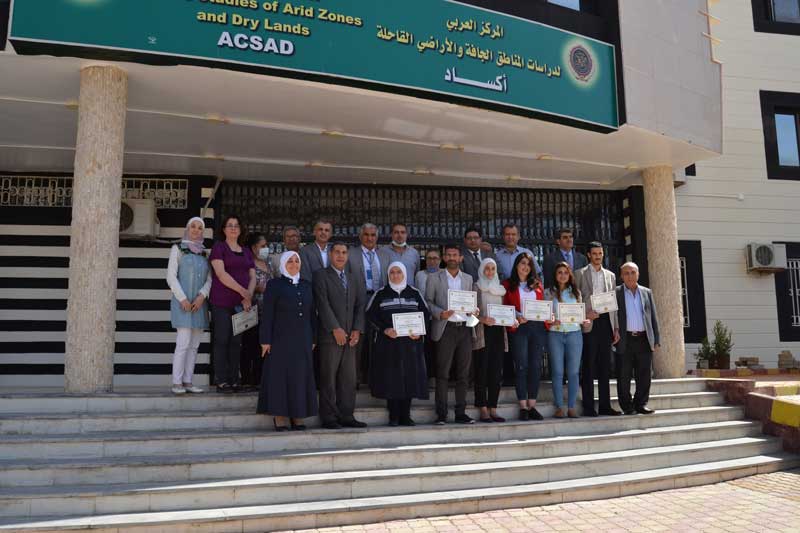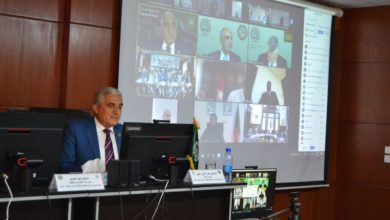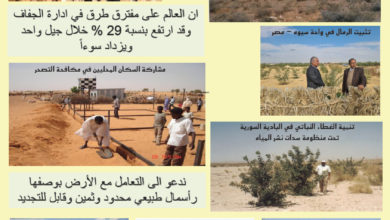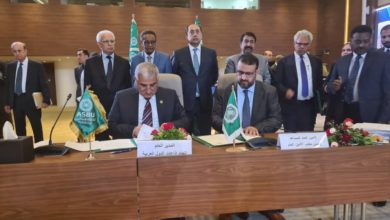ACSAD concluded a training workshop entitled ” using of biotechnology to detect drought-tolerant genes in barley.”
The Director-General of the Arab Center for the Studies of Arid Zones Drylands (ACSAD), Dr. Nasr Edin Obaid, concluded at the Center’s headquarters in Damascus, today the scientific and applied activities of the training workshop on “the use of biotechnology on the detection of new drought-tolerant genes in barley “for the benefit of six trainees from the Syrian Ministry of Agriculture and Agricultural Reform, the Faculty of Agriculture of Damascus University, and three trainees from ACSAD.
The four-day workshop included several main and practical axes using the latest modern scientific techniques and technologies, owned by ACSAD’s laboratories, experts, and cadres.
These axes included several topics, the most important of which were biotechnologies, genetic material and genes, methods for extracting genetic material, extraction of genetic material, electrophoresis and genetic material estimation, preparation of gel, injection of genetic material into the gel, applications of PCR-based technologies, and the role of ACSAD in the development of drought-tolerant barley varieties.
The theme also included the use of bioinformatics to read and interpret results, and the mechanism of gene inheritance that is stress-tolerant in the barley.
The workshop was supervised by a number of qualified Syrian and Arab researchers working in the organization of Acsad.
In a speech, Dr. Nasr Edin Obaid, the Director-General of ACSAD, stressed the importance of teamwork in any organization activity at various levels, working hard to link theoretical information to the live field practice and drawing the desired from them.
Dr. Obaid expressed his hope that the trainees had benefited from this workshop in their upcoming fieldwork and hopes.
In their turn, the trainees expressed their thanks and appreciation to ACSAD and the Director-General for the hospitality and interest they had received during their training; and confirmed that they had received utmost importance and useful training, which had provided them with a great knowledge base in their specialized field.




